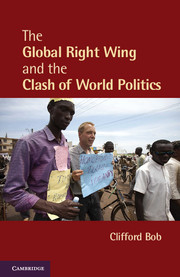7 - Conclusion
Published online by Cambridge University Press: 05 June 2012
Summary
The Landmines Treaty, the International Criminal Court (ICC), the Responsibility to Protect (R2P): recent decades have seen a host of new international initiatives celebrated as triumphs of civil society. As the activists involved well know, however, these were hard-fought accomplishments, achieved after years of bruising battles against recalcitrant states and broader networks. Each policy emerged diminished from the original dream: the Landmines Treaty, unratified by the world's biggest mine producers and users; the ICC, similarly partial; and R2P, simply a contested idea.
Nor has conflict over these institutions and norms ended. With the ICC's passage, sovereigntist NGOs and the U.S. government, which did not ratify the Rome Statute, demanded Article 98 agreements from other states, further insulating American officials from the already small possibility of prosecution. A key practitioner of universal jurisdiction, Spanish judge Baltazar Garzon, found himself indicted by a national court – for pursuing such foreigners as Chilean President Augusto Pinochet – much to the delight of conservative legal lights overseas. The Landmines Treaty faces continued attack from those who doubt its effectiveness and sensibility. For its part, R2P has been denounced by both left and right.
- Type
- Chapter
- Information
- The Global Right Wing and the Clash of World Politics , pp. 183 - 200Publisher: Cambridge University PressPrint publication year: 2012

